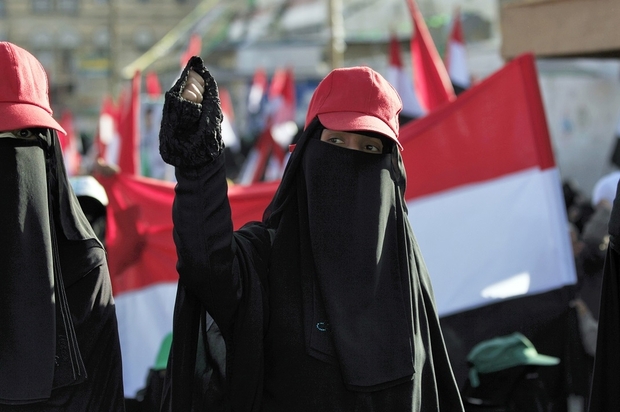The New York Times carried a dramatic story on 4th December, 2017 explaining that the balance of forces in the war in Yemen may have shifted decisively against Saudi Arabia. A technical analysis shows that the Saudis had lied about shooting down a SCUD missile fired at Riyadh airport by the Houthis recently, whereas, in actuality, the latter do have the capability now to hit key targets inside Saudi Arabia wherever, whenever they choose.
Put differently, what is shaping up is a replay of what Iran achieved in Lebanon by helping the Hezbollah to project deterrence against Israel and force that country not to undertake further attacks. The Hezbollah has something like 150000 rockets targeted at Israel. The Houthis now are threatening that they’ll hit Saudi Arabia and the UAE unless these oil-rich countries stopped their attacks against Yemen. Quite obviously, it is against this backdrop that we need to assess the desperate plot by Saudi Arabia and the UAE to create rifts in Sana by getting Abdullah Saleh to defect, which in turn led to his murder on Monday at the hands of the Houthis.
In a terse remark, Commander of the Islamic Revolution Guards Corps (IRGC) Major General Mohammad Ali Jafari reportedly said in Tehran today, “We witnessed that they (Saudis and Emiratis) intended to launch a coup against the Mujahedeen and Ansarullah (read Houthis) but this plot was nipped in the bud. They are sowing differences among Muslims at the behest of the US, and with its support, and of the Israelis.”
In political terms, Saleh’s murder means that the “exit strategy” worked out by Riyadh and Abu Dhabi has flopped. Ironically, on the very eve of Saleh’s murder, the well-known security analyst at the Brookings, Bruce Riedel had explicitly warned that the ploy to divide the Yemeni opposition (Houthis) would be “a long shot, and not a viable strategy for Washington.” Riedel, who is an authority on the war in Yemen, wrote:
- So a war within the rebel camp has a potential for dividing the kingdom’s enemies. Some senior Saudi officials have told their American counterparts that this may be their best chance to end the war on favorable terms. The Saudi media eagerly reports news of conflict between the rebel factions… The worst outcome for the Saudis would be if the Houthis quickly routed Saleh’s supporters and consolidated their control of the rebellion… Iran is the only winner, as it provides aid and expertise to the Houthis at a tiny fraction of the cost of the Saudi war effort while the Islamic Republic’s Gulf enemies spend fortunes on a conflict they jumped into with no endgame or strategy. Saleh is an unlikely savior.
Riedel’s prognosis has turned out to be literally prophetic. Saleh’s departure means that the Saudis and Emiratis cannot easily extricate themselves from the quagmire in Yemen. In turn, this would have implications for the Saudi-Iranian rivalry. It suits Tehran if the Saudis pay a heavy price for their intervention in Yemen and get bogged down in that country. We may expect Iran now to use its influence with the various rebel groups to see that there is no in-fighting. Interestingly, Ali Akbar Velayati, senior advisor to Iran’s Supreme Leader, has openly signaled to Saudi Arabia and the UAE that its plot to divide the rebels has been defeated. To quote Velayati.
The people of Yemen will decide about their country’s future. The Yemeni people have resisted for over two years against the relentless and barbaric bombing of the Saudi regime and meantime, they are taking care inside their country so that the hypocrites who were disguised as allies don’t lead the fight into a failure, and the plot organized by the UAE and Saudi Arabia so that Ali Abdullah Saleh can stab the Yemeni fighters on the back was foiled. Saleh was punished for his deeds. This (Saleh’s killing) was done as a result of a decision by Yemen and the decisions will continue. The Yemeni people would finally succeed like the people in Syria, Iraq and Lebanon.
It is discernible that following the strident rhetoric and threats by the Trump administration and Israel in the recent weeks, the Iranian stance has hardened. (Velayati warned today that the US will not be allowed to keep an open-ended military presence in Syria.) In effect, therefore, Yemen has become a frontline state of the so-called “resistance”, finally.
‘Courtesy New York Times’.


